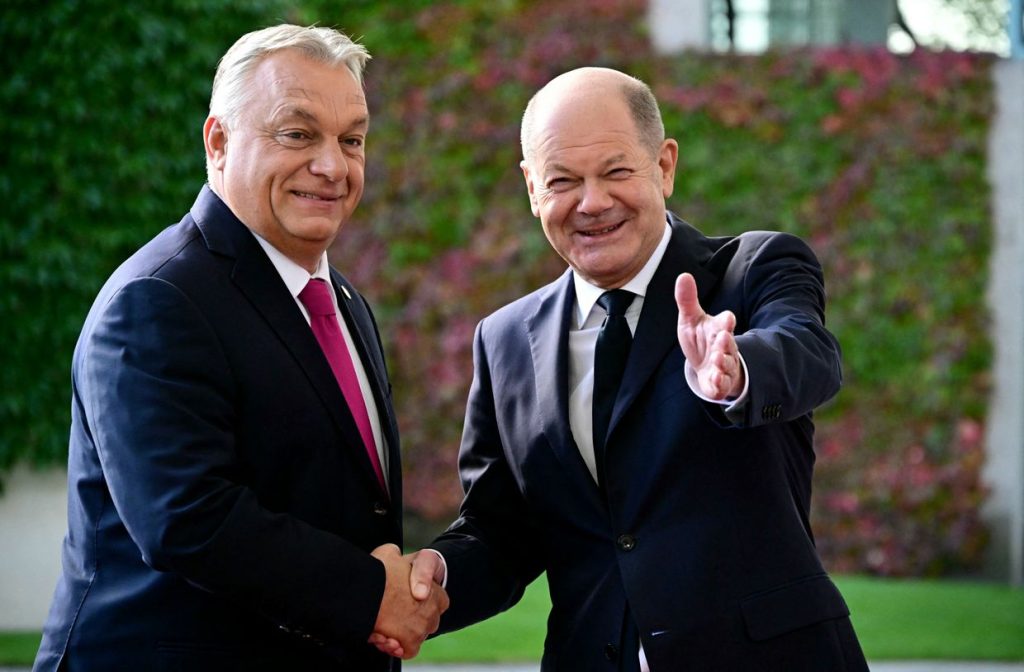Germany and France are expressing concerns about the European Union diplomatic service’s plan to work around Hungary’s veto of 6 billion euros in defense assistance for Kyiv. Hungary has been blocking this aid under the European Peace Facility for over a year, causing frustration among other member states. The European External Action Service suggested that countries could make voluntary contributions to allow the military aid to flow without unanimous consensus. Paris and Berlin fear that this approach could jeopardize the EPF’s role as the EU’s foreign policy tool, especially as some countries require parliamentary approval for contributions, which could further complicate and delay the process.
The European Peace Facility has been crucial in supporting Ukraine’s defense capabilities since 2022 but faced depletion earlier this year as member states disagreed on how to replenish it and provide more cash for Ukraine. Although the EU approved an additional 5 billion euros for Ukraine in the spring, Hungary has been blocking the disbursement of these funds. Hungarian Prime Minister Viktor Orban, known for his friendly stance towards Russia, has consistently hindered EU aid for Ukraine and opposed sanctions against Russia. Tensions between Budapest and Brussels escalated during Hungary’s rotating presidency, with member states and institutions boycotting Hungarian-held events due to Orban’s visit to Moscow in July.
Orban’s opposition to Ukrainian President Zelensky’s victory plan has further strained relations between Hungary and the EU. Orban described Zelensky’s outline in the Ukrainian parliament as “more than terrifying” and urged EU leaders to initiate negotiations with Moscow as soon as possible. This stance reflects Orban’s reluctance to support Ukraine’s efforts and his preference for dialogue with Russia. The differing positions within the EU, particularly between Hungary and other member states like Germany and France, highlight the challenges of maintaining cohesion on foreign policy issues, especially in the context of Russia’s influence in the region.
The concerns raised by Germany and France regarding the EPF’s future highlight broader discussions within the EU on how to navigate disagreements among member states on crucial matters like defense assistance for Ukraine. The proposal to allow voluntary contributions could potentially lead to a fragmented approach to foreign policy within the EU, diluting the bloc’s collective stance. The situation also underscores the broader geopolitical dynamics at play, with Hungary’s close ties to Russia creating tensions within the EU’s efforts to support Ukraine and counter Russian aggression.
The EU’s inability to deliver much-needed defense assistance to Kyiv due to Hungary’s veto underscores the challenges of achieving unity and consensus on critical foreign policy issues. The ongoing disagreements within the EU reveal underlying divisions on how to approach Russia and support Ukraine, highlighting the complexity of navigating relationships with neighboring countries with conflicting interests. As tensions persist between Hungary and other EU member states, finding a resolution that balances competing priorities and ensures solidarity within the bloc remains a significant challenge for European leaders.














